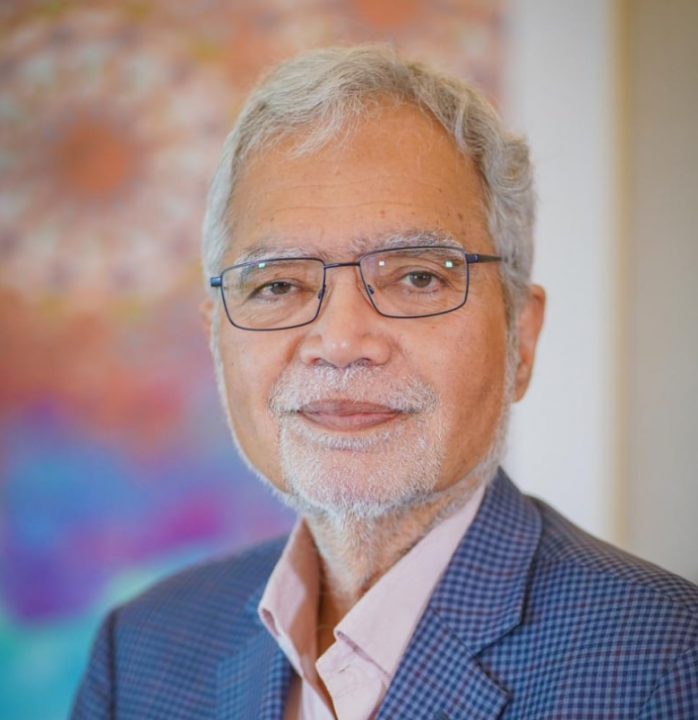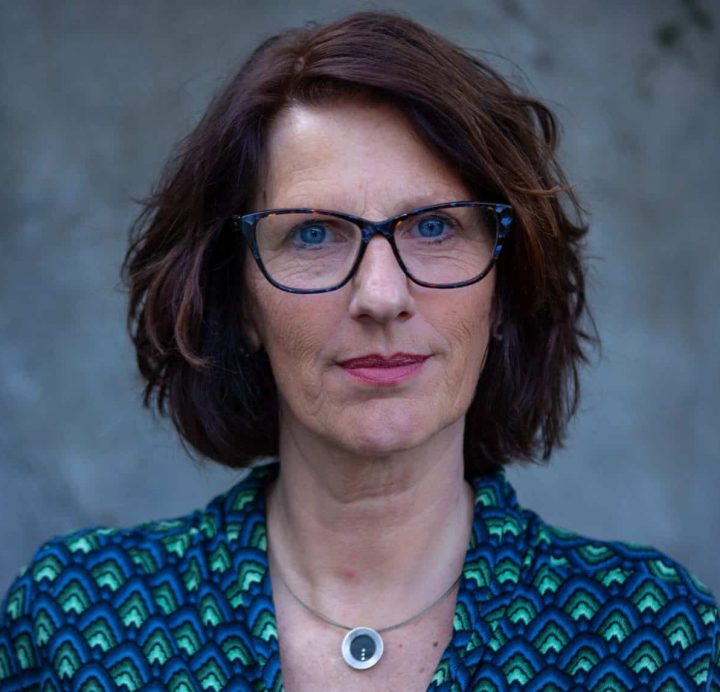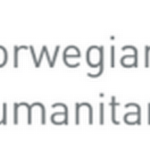NCHS Humanitarian Futures Conference
<div class="event-icon"></div> <span>Save this event in my Outlook calendar</span>
<div class="event-icon"></div> <span>Save this event in my Google Calendar</span>
The Norwegian Centre for Humanitarian Studies (NCHS) is holding the ‘Humanitarian Futures’ conference at the Litteraturhuset in Oslo on 7 and 8 June 2023.
The conference will be organised around the central themes of:
- the future of humanitarian governance,
- the future delivery of humanitarian assistance, and
- the future for displaced people.
Please see the current program below (noting this is subject to minor change and updates).
This conference is free and open to the public. Please be aware that seats are limited so register your interest to attend here (you will recieve an email confirming your place).
The NCHS is a collaboration between the Chr. Michelsen Institute, the Norwegian Institute of International Affairs and the Peace Research Institute Oslo.
To find out more about the conference visit the NCHS website here.
Conference program
Day 1: Wednesday 7 June
11:30-12:00 – Light lunch and mingling on arrival
Program commences
12:00-12:15 – Opening: Antonio De Lauri (NCHS Director and Research Professor, Chr. Michelsen Institute, CMI)
12:15-13:00 – Keynote: Amali Tower (Founder and Executive Director, Climate Refugees) – Living in a changing climate: Dynamics of forced migration and displacement (with Q&A)
Introduced and moderated by Antonio De Lauri (CMI and NCHS)
13:00-14:00 – Session 1: The future of displacement – research perspectives (with Q&A)
Displacement is on the rise. An estimated 103 million – or one per cent of the world’s population – is now displaced, with the majority being Internally Displaced Persons (IDPs). As displacement becomes more prolonged and intertwined with old and new vulnerabilities, different challenges need to be understood and addressed. Conflict, famine, poverty, climate change and other social and political drivers of displacement heavily affect the life of the people and in turn displacement is impacting the environment. What does this mean for the future of displacement? What does this mean for migration governance and policy? What are the urban futures of displacement? How do displaced persons interact with the environment and what forms of adaptation and impact do they experience?
- Cathrine Talleraas (Postdoctoral Researcher, CMI and Senior Researcher, Peace Research Institute Oslo, PRIO)
- Anwesha Dutta (Senior Researcher, CMI)
- Are Knudsen (Research Professor, CMI)
Moderator: Teklehaymanot G. Weldemichel (Postdoctoral Researcher, Norwegian University of Science and Technology, NTNU)
14:00-14:15 – Tea and coffee break
14:15-15:15 – Session 2: The future of displaced people and the role of humanitarian assistance (with Q&A)
Displacement disproportionally impacts those most vulnerable, and displacement impacts the lives of displaced people, their host communities and those they leave behind in a myriad of ways. What are the ongoing and emerging challenges in delivering humanitarian assistance for displaced persons and how can these be addressed for the future? How do people directly affected by crisis and emergency cope with existing structures and policies? How do they themselves contribute to the delivery of humanitarian assistance and how can this agency be encouraged?
- Ryosuke Teraoka (Head of Kurdistan Region of Iraq Office, UN-Habitat)
- Ramon Olaf Broers (Senior Advisor, Norwegian Red Cross)
- Nada Yehia (Doctoral Researcher, University College Dublin)
- Sodip Roy (Doctoral Researcher, Corvinus University of Budapest)
Moderator: Arne Strand (Senior Researcher, CMI)
15:15-15:30 – Tea and coffee break
15:30-16:30 – Session 3: The future of the multilateral system and impacts for humanitarian affairs and governance (with Q&A)
- Raphael Gorgeu (Senior Research Associate, HERE-Geneva)
- Simon Reid-Henry (Research Professor, PRIO)
- Kristoffer Lidén (Senior Researcher, PRIO) and Kristina Roepstorff (Senior Researcher, PRIO)
Moderator: Eva Johais (Postdoctoral Researcher, CMI)
16:30-16:45 – Tea and coffee break
16:45-17:30 – Film screening: Hunger Ward
Filmed from inside two of the most active therapeutic feeding centers in Yemen, Hunger Ward documents two female health care workers fighting to thwart the spread of starvation against the backdrop of a forgotten war. Directed by two times Oscar nominee Skye Fitzgerald, the film provides an unflinching portrait of Dr. Aida Alsadeeq and Nurse Mekkia Mahdi as they try to save the lives of hunger-stricken children within a population on the brink of famine.
17:30-18:15 – Session 4: The forgotten war in Yemen (with Q&A)
- Fekri Dureab (Postdoctoral Researcher, Heidelberg University)
- Marina de Regt (Associate Professor, Vrije Universiteit Amsterdam)
Moderator: Júlia Palik (Senior Researcher, PRIO)
18:15-18:45 – Mingling and refreshments
19:00: Day 1 close
Day 2: Thursday 8 June
Tea and coffee on arrival
09:00-09:45 – Keynote: Mukesh Kapila (Writer, Professor Emeritus, University of Manchester) – What killed the humanitarian consensus? (with Q&A)
Introduced and moderated by Stein Sundstøl Eriksen (NUPI and NCHS)
09:45-10:45: Session 5: Norwegian humanitarianism – the way forward (with Q&A)
- Lindis Hurum (General Director, Doctors Without Borders Norway, MSF)
- Laila Matar (Advocacy and Media Director, Norwegian Refugee Council)
- Hilde Salvesen (Humanitarian Affairs, Norwegian Ministry of Foreign Affairs, MFA)
Moderator: Jon Harald Sand Lie (Research Professor, Norwegian Institute of International Affairs)
10:45-11:00 – Tea and coffee break
11:00-12:30 – Session 6: The future of humanitarian design, innovation and technology (with Q&A)
In response to ever-growing demands, humanitarian actors take advantage of new technology and innovations. Examples range from medicine and materials to communication systems and big data. The settings in which these are used – be it in war, natural disaster or refugee management – require careful consideration of resources, adaptation, effects and scenarios. What developments, risks, ideals and policies of technology and innovation are shaping humanitarian action and what are the implications for the future of humanitarian design?
- Anna Leander (Professor, Geneva Graduate Institute) and Jonathan Luke Austin (Assistant Professor, University of Copenhagen)
- Brita Fladvad Nielsen (Associate, NTNU)
- Andrea Düchting (Fellow, Center for Humanitarian Action, CHA)
- Kristin Bergtora Sandvik (Professor, University of Oslo and Research Professor, PRIO)
Moderator: Kristoffer Lidén (Senior Researcher, PRIO and NCHS Deputy Co-Director)
12:30-13:15 – Lunch break
13:15-14:00: – Keynote: Dorothea Hilhorst (Professor, Erasmus University) – Future or science fiction? A reality check of humanitarian action (with Q&A)
Introduced and moderated by Maria Gabrielsen Jumbert (Research Director, PRIO and NCHS Co-Director)
14:00-15:00 – Session 7: Who provides humanitarian assistance and how? A conversation about multiple ways to understand humanitarianism – today and tomorrow (with Q&A)
An important part of the discussion on what constitutes humanitarian aid is also about who are the humanitarians: from staff of large professional humanitarian NGOs, to international volunteers, grassroots and citizen humanitarians to local first-responders and the local preparedness infrastructures. What are the differences between professional humanitarianism and more relational forms of humanitarianism, and in which ways does these distinction matter?
- Mrudhula Koshy (Assistant Professor, NTNU)
- Heidi Mogstad (Postdoctoral Researcher, CMI)
- Thea Næs Rabe (PhD Candidate, Nord Universitet)
- Emmanuel Viga (PhD Candidate, NTNU)
Moderator: Cindy Horst (Research Professor, PRIO)
15:00-15:15 – Tea and coffee break
15:15-16:15 – Session 8: Where does the money come from and who does it reach? What do funding models say about motivation, conditionality and accountability? (with Q&A)
Understanding what humanitarian action is in a broad sense – what it achieves and aims to achieve, with its underlying principles, values and drivers, also requires us to look at the funding streams: from who the donors are, and which conditionalities they lay down (if any), to decisions on who it is supposed to reach and how. How do so-called non-traditional donors differ from traditional donors, between aid based on need to aid to specific communities? And how do emerging humanitarian initiatives balance the desire to provide direct assistance (without overhead costs) with the need to also ensure professional and sound management of the same projects? How are these different points of tension shaping the future of humanitarian aid?
- Kaja Borchgrevink (Senior Researcher, PRIO)
- Clara Egger (Assistant Professor, Erasmus University, Rotterdam)
- Drop in the Ocean (Dråpen i Havet – Representative TBC)
- Beata Paragi (Associate Professor, Corvinus University of Budapest)
Moderator: Maria Gabrielsen Jumbert (PRIO and NCHS)
16:15-17:00 – Mingling and refreshments
Program concludes
Keynote speakers
The NCHS is very pleased to have the following keynote speakers join us to share their insights on the future of humanitarian assistance.
Amali Tower, Founder of Climate Refugees
Living in a changing climate: Dynamics of forced migration and displacement
Amali Tower is the founder of Climate Refugees, a human rights organisation that calls for the protection and rights of those displaced by climate change. She has extensive global experience in refugee protection, refugee resettlement and in forced migration and displacement contexts, having worked globally for numerous NGOs, the UN Refugee Agency and the US Refugee Admissions Program. She is also a member of the World Economic Forum Expert Network in Migration, Human Rights and Humanitarian Response, and the UC Berkeley Center on Comparative Equality and Anti-Discrimination Law (climate refugees and immigrant justice working group).

Mukesh Kapila, Professor Emeritus of Global Health and Humanitarian Affairs at the University of Manchester
What killed the humanitarian consensus?
Mukesh Kapila is a Professor (now Emeritus) of Global Health and Humanitarian Affairs at the University of Manchester, where he also founded and chaired the Manchester Global Foundation. He has extensive experience in global and public health, international development, humanitarian affairs, conflict and security issues, human rights and diplomacy and social entrepreneurship. He has held leadership roles in government, the United Nations system and multilateral agencies, International Red Cross and Red Crescent, civil society and academia. Professor Kapila is also an author and public and media speaker.

Dorothea Hilhorst, Professor of Humanitarian Studies at the International Institute for Social Studies of Erasmus University
Future or science fiction? A reality check of humanitarian action
Professor Hilhorst is an expert in development in areas affected by disaster, conflict or fragility, with a special focus on aid-society relations, including the impact of humanitarian aid on society and the ways in which people and institutions shape the organisation of aid relations. She leads a European Research Council project which aims to understand how humanitarian governance is evolving and particularly how civil society actors and crisis-affected people shape humanitarian governance. Professor Hilhorst was also awarded the 2022 NWO Spinoza Prize for her contribution to the field of humanitarian studies and is the president of the International Humanitarian Studies Association.
Project








